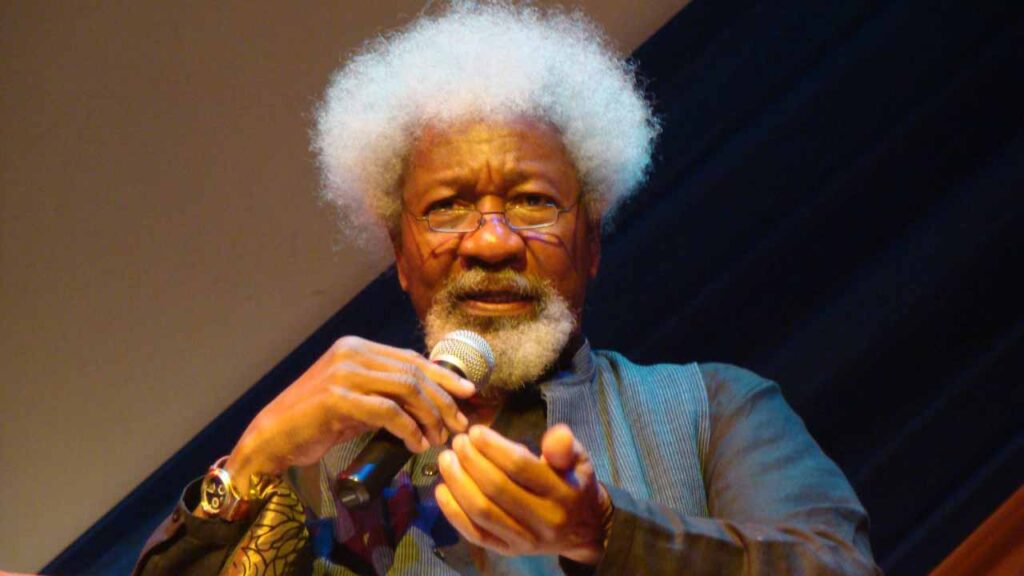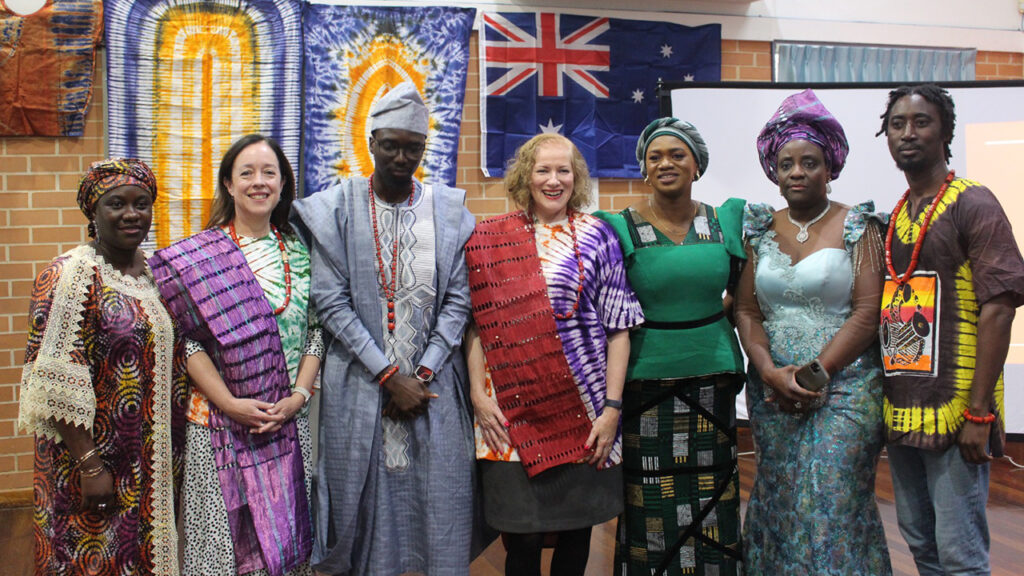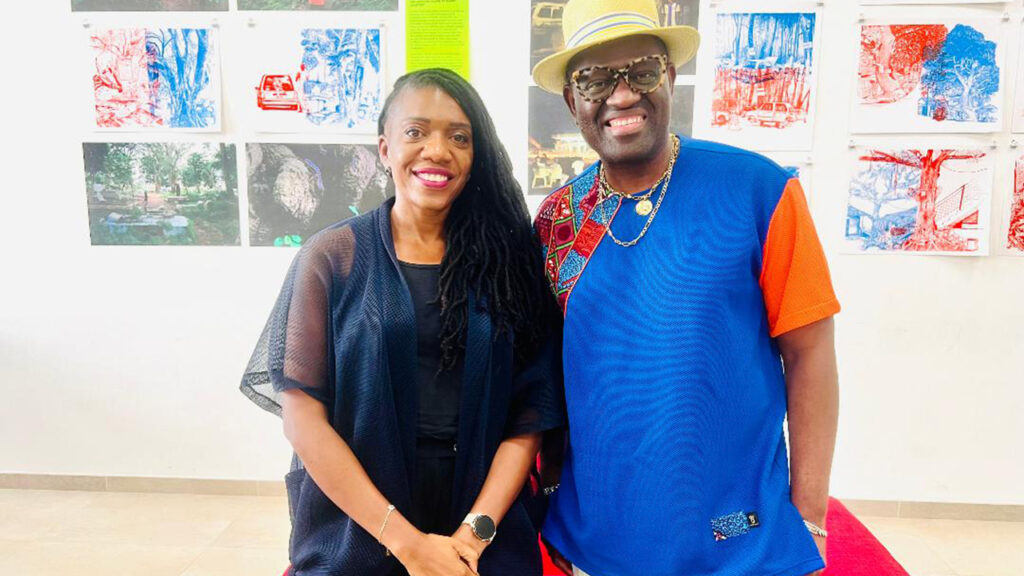 Ameticulous civil servant with a keen eye for documentation and archiving. A folklorist with a desire to keep the narrative flowing, both on the public and creative spheres. These are the inimitable attributes of a former Permanent Secretary in the Presidency, Dr. Bukar Usman.
Ameticulous civil servant with a keen eye for documentation and archiving. A folklorist with a desire to keep the narrative flowing, both on the public and creative spheres. These are the inimitable attributes of a former Permanent Secretary in the Presidency, Dr. Bukar Usman.
After retiring from public service over 30 years ago, he turned his attention to documenting the past, the present and the future. The outcomes of this documentation drive are the numerous publications in terms of books, paper presentations, reports and reviews on him and his literary activities.
Every year Usman keeps reinventing himself with new offerings that come from his ever-fertile imagination even at over 80! Indeed, there’s a certain restlessness about him that confounds the young ones in his continuing push to extend the frontiers of knowledge through his numerous outputs.
It was no surprise, therefore, when he recently came out with two interesting tomes: Conversations with Bukar Usman and My Literary Works: Reviews and Reports (Klamidas Communications Ltd, 2022; Abuja).
While Conversations with Bukar Usman deals with over 100 interviews he had with newspapers, radio and television stations, My Literary Works: Reviews and Reports is an expose of his public interventions and literary activities over the years. It is a formidable output in a massive 1,108 pages.
In this work that Usman edited himself, the civil servant in him shows through and through, as he painstakingly documents everything written about what has been produced around him as a writer and public intellectual since venturing into the arena of writing. It’s an uncommon trait that only a man who was used to the intense paperwork of civil service would undertake. And Usman does it admirably.
My Literary Works: Reviews and Reports is divided into four parts that consists of ‘Reviews of Bukar Usman’s Books,’ ‘Bukar Usman’s Book Reviews,’ ‘Evaluations of Bukar Usman’s Writing & Legacy’ and ‘Feedback from Readers of Bukar Usman’s Writing.’ Part I is the most voluminous part of the book and consists of seven sections: Reviews of Bukar Usman’s Autobiographical Books (Hatching Hopes, My Literary Journey and My Public Service Journey), Reviews of Bukar Usman’s Books on Public Policy Matters (Voices in a Choir: Issues in Democratsation and National Stability in Nigeria), Public Policy Formulation in Nigeria: Challenges and Prospects, Issues and Challenges of National Security, Restructuring Nigeria: An Overview and Press, Policy, Responsibility), Review of Bukar Usman’s Biu Emirate Studies Series (BESS) Books (Girl-Child Education in Biu Emirate: The Early Years, Language Disappearance and Cultural Diversity in Nigeria and A Biu History), Reviews of Bukar Usman’s Books on Folklore, Technology and Democratic Culture (Folklore and History: Twin Rivers of World Heritage and Language, Technology and Democratic Culture), Reviews of Bukar Usman’s Short Story Books: The Bride Without Scares and Other Stories, The Stick of Fortune and Girls in Search of Husbands), Reviews of Bukar Usman’s Treasury of Nigerian Tales (TNT) Series Books (A Selection of Nigerian Folktales: Themes and Settings, People, Animals, Spirits and Objects: 1,000 Folk Stories of Nigeria, and Gods and Ancestors: Mythic Tales out of Nigeria), Reviews in English of Bukar Usman’s Hausa and Ajami Folktales (Marainiya Do Wasu Labarai, Jarumin Sarki Yarima da Labbi, Sandar Arziki, Dankutungayya, Marainiya & Muguwar Kishiya, Taska Tatsuniyoyi and Taskar Tatsuniyoyi Cikin Ajami).
A ‘Foreword’ by one of Nigeria’s foremost diplomats, academics and writers, Prof. Iyorwuese Harry Haghar puts proper perspective to both the book and its editor, Usman, when Haghar writes the editor and his role in nation building, “Bukar Usman is no ordinary Nigerian. He is first and foremost a product of British colonial education. He was chosen and assembled into the core-Nigerian elite status by being admitted into Kings College, Lagos… They were to be the new colonialist. Usman tells us proudly in this book that his class produced the highest number of professors in Nigeria.
But it has done much more; King’s College, Lagos has produced super-permanent secretaries, traditional and military rulers, bank owners and executives, captains of industries, and critical manpower. Bukar Usman is a product of this nurturing. King’s College ran and still runs Nigeria.”
Haghar’s telling testimony about Usman and his generation gives us a snippet into the mind of this man of letters and why readers should take his books seriously. He was trained to be among those who were to run Nigeria. He ran Nigeria from his own space. The product of that experience forms the basis of most of his interventions in the public space as public intellectual. What Usman has done with this book is to aggregate critical opinions on his writing in one neat volume for ease of reference. This is exactly what his publisher (Klamidas Books), Duve Nakolisa lends his voice to in his ‘Introduction’, where he explains the ‘Relevance of Book Reviewing and Book Review Indexing’.
Nakolisa affirms that My Literary Works: Reviews and Reports scores a first in Nigeria, when he says, “This is perhaps the first collection of book reviews to be published in Nigeria,” and gives context to the ownership of a book after it has been published: “A book is a public property, its authorship or ownership notwithstanding, any book you own is simply your copy of that given book which itself exists independent of you. A book belongs to the public in terms of readers’ interaction with it. The author’s control over how it should be read, understood or interpreted ceases at the point of publication.” But then, ‘Why is a book review important?’
Again, Nakolisa advances 10 reasons for this, and goes on to provide ‘Factors that Necessitated the Publication of this Book’. He writes, “One may ask, ‘why is this compilation of reviews of Bukar Usman’s books necessary?’ Let’s begin our response by noting that tracking down a review is much easier in the West than in Nigeria where there is currently inadequate newspaper book-review indexing and abstracting service.” Nakolisa gives the instance of one of Usman’s books that was reviewed in 2006 by a major national newspaper published in print and online, but which could not be found online in 2011, as an example of the archival importance of a book like Usman’s My Literary Works: Reviews and Reports. Clearly, Usman’s new offering bridges the avoidable archival gap that plagues scholarship in this part of the world. The publisher also notes that since Usman’s books are being studied in universities all over the world, it would make sense to provide an indexing of his books to assist these scholarly efforts.
Like all such archiving books, My Literary Works: Reviews and Reports has a generous display of photographs and memorabilia that are signposts of Usman’s activities in the public sphere over the years. These photographs give insight into the various public discourses that have engaged Usman’s attention. Like everything about Usman, these photographs give epochal, historical overview of Nigeria, as seen through the lens of a senior civil servant. Usman meticulously titles the photographs in such a chronological manner that is at once personal and historical. The first set of photographs he titles ‘Working Life Pictures’, and shows Nigeria’s historical (and other international) figures such as prime ministers and heads of states from independence in the 1960s. ‘Honorary Awards Pictures’ is the second set of photographs that shows Usman’s many award plaques, as a demonstration of a dedicated worker.
There’s also ‘Book Presentation Pictures,’ ‘Travelogue Pictures,’ ‘Biu Local Administration’, ‘Biu Community Projects’ and ‘Art Works’ that show the pottery artistry of Biu Emirate,’ with ‘Former Biu Capitals’ completing the pictorially rich book.
The reviews of his books and reports on his literary activities are well captured in Nigeria’s major newspapers by some of the finest journalists plying their trade in the country. From The Guardian to ThisDay, from The Sun to The Nation, from Daily Independent to The Tribune, from Daily Trust to Leadership, the list is endless; Usman’s works have enjoyed immense exposure in the dailies. It is these reviews and reports that he has painstakingly harvested in one neat, big volume. Usman has shown that documentation and record-keeping are vital aspects of scholarship and national development. This is a commendable archival effort worthy of emulation.












